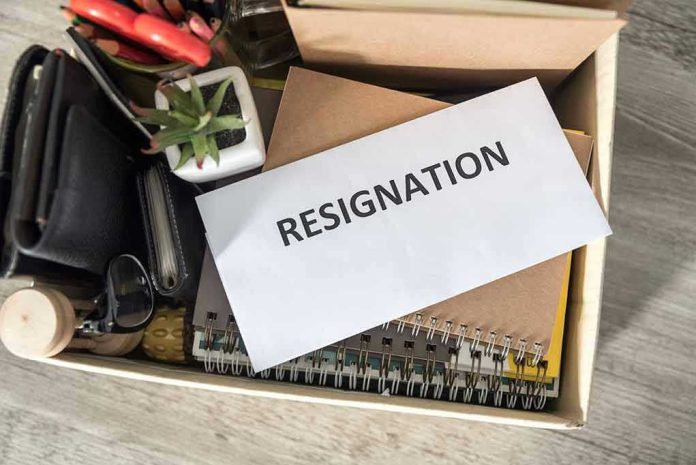
Editorial misconduct at the BBC led to the dramatic resignations of its top leadership after a Trump documentary error, igniting a firestorm over media bias, accountability, and the integrity of publicly funded broadcasters.
Story Snapshot
- BBC Director-General and News Chief resigned after an admitted editing error in a Trump-focused documentary.
- Donald Trump threatened a $1 billion lawsuit, intensifying scrutiny of media credibility and accountability.
- The UK government distanced itself from the BBC, raising questions about the future of the mandatory licence fee.
- This crisis exposes the risks of unchecked media power and the urgent need for editorial transparency.
BBC Leadership Crisis Unfolds After Documentary Blunder
On November 10, 2025, the BBC found itself at the center of a global media storm after its Director-General Tim Davie and the CEO of BBC News abruptly resigned. Their departure followed an admission by the BBC chair of a significant editing error involving a Donald Trump speech in a documentary about the January 6, 2021 Capitol riots. This error, which misrepresented a sitting U.S. president, triggered immediate outrage and forced top leadership to accept responsibility for the institutional lapse, leaving the BBC with a leadership vacuum during a critical period.
The incident has sparked widespread concerns about the lack of editorial oversight and verification at major public broadcasters. Conservative audiences, long wary of perceived liberal bias in mainstream media, see this as further evidence of systemic problems within taxpayer-funded institutions. The error in the documentary was more than a technical mistake—it was a breach of trust that highlighted the dangers of politicized reporting and the influence of unchecked editorial power, especially when it comes to shaping public perception of major political figures like President Trump.
Trump’s Legal Threat and the Push for Media Accountability
Donald Trump wasted no time in announcing a $1 billion lawsuit against the BBC, citing the damage caused by the documentary’s misrepresentation of his words. This legal threat has energized calls for greater accountability in media organizations, particularly those funded by public money. Many Americans, frustrated by years of biased coverage and “woke” agendas, see Trump’s move as a necessary response to hold global media giants accountable for their actions. The unprecedented scale of the lawsuit also signals a growing willingness among conservative leaders to challenge what they view as media overreach and political manipulation.
The BBC crisis comes as the UK government faces mounting pressure to review the broadcaster’s funding model. Downing Street responded by asserting that the BBC is not corrupt, but pointedly refused to guarantee the future of the mandatory licence fee. This ambiguity has fueled speculation about potential reforms and the possibility of shifting away from taxpayer-supported media, a move that resonates with conservatives who oppose forced funding of institutions accused of undermining traditional values and constitutional principles.
Broader Implications for Public Media and Political Coverage
The fallout from the BBC’s blunder extends beyond individual resignations or legal threats. It has exposed deep flaws in editorial processes and raised serious questions about the governance of state-funded media. For conservative readers, the crisis validates longstanding concerns that public broadcasters too often operate without sufficient checks, pushing narratives that erode faith in fair reporting and democratic debate. The leadership shakeup at the BBC is likely to prompt a broader industry reckoning over documentary standards, verification protocols, and the role of political accountability in journalism.
Critically, this episode highlights the vital importance of independent oversight and transparent governance in organizations wielding immense cultural and political influence. The BBC’s struggle to restore credibility serves as a warning to other media outlets that the public will no longer tolerate editorial misconduct or one-sided reporting. As new leadership takes the helm, the challenge will be to rebuild trust with audiences who demand honesty, impartiality, and respect for foundational values—including the right to accurate information and a balanced public discourse.
Media, Politics, and the Battle for Public Trust
With Trump back in the White House, the relationship between political leaders and the press is once again under the microscope. The BBC’s crisis reveals the risks when media institutions fail to uphold the highest standards of accuracy and accountability. For many American conservatives, this story is a reminder of the ongoing fight to defend constitutional rights, protect families from ideological agendas, and ensure that public institutions serve—not manipulate—the people. The BBC scandal stands as both a cautionary tale and a rallying point for those committed to reclaiming media integrity in the face of persistent bias and government overreach.




